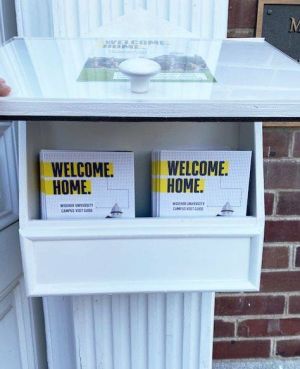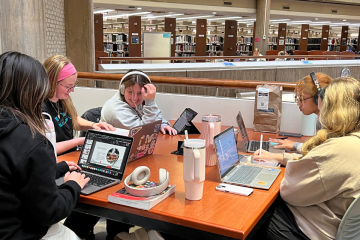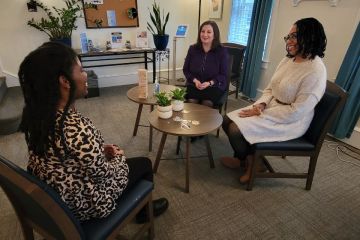Admissions Office Announces Test Optional-Policy for 2021-22, Adds New Ways to Connect with Students

Widener University will extend its test-optional undergraduate admissions process into the 2021-22 academic year under a decision intended to simplify the application process for high school students whose plans to take the SAT or ACT have been hampered by the pandemic.
The decision is one of several developments at Widener that will ease the stress on prospective students as they maneuver a college selection process impacted by the COVID-19 virus and the ongoing need for social distancing.
“We recognize it continues to be very difficult for high school students to sit for the SAT and ACT exams under these conditions. There is uncertainty about what their high school experiences will look like for the rest of 2021 and into 2022, especially with so many unknowns about the administration of a vaccine. With so much uncertainty we knew this was the right thing to do,” said Courtney Kelly, executive director of admissions.
Under the test-optional admissions policy, applicants for undergraduate admission may submit an essay on a topic of their choosing, instead of standardized test results. Widener’s admissions team also takes a more in-depth look at the high school courses applicants have taken, assessing the level of rigor, and how students fared in those classes.
The decision to continue the test-optional process another year reflects Widener’s commitment to being an agile institution dedicated to adjusting its processes, academics, and business operations to ensure an outstanding student experience. For admissions, this means developing new practices that create excellent experiences for prospective students, too.
Working with Widener’s department of University Relations, Kelly’s office developed an unguided campus walking tour, where prospective students and their guests are able to stroll outdoors between buildings, masked and socially distanced, while they scan their smartphones over QR codes on signs placed outside building entrances. The process allows visitors to call up more information on their devices about what happens in the building in front of them, and view photographs or videos of it.
“We continue to offer guided tours by appointment and online virtual tours,” Kelly said, “but the self-guided walking tour allows prospective students to see things in person without an appointment and safely move around outdoors as they gather information at their own pace.”
Widener has also begun admitting the common admissions application for transfer students. Just like the “common app” admitted for incoming freshmen, this process meets transfer students where they are.
“The whole notion of the common app is convenience, and we are committed to making the admissions and application experience for all undergraduate transfer students as uncomplicated as possible,” Kelly said.
The university developed a personalized chat feature on admissions sections of the Widener website during the fall. It allows prospective students to engage directly with a real person on the other side of the screen who is waiting to answer their questions. As the pandemic required so many human interactions to become remote exchanges, the chat feature was intended to personalize and soften the search for information about the university. It comes after the Admissions Office’s transition to all-remote prospective student information days has received high praise from families for creating easy-to-navigate, collegial and warm remote experiences that are packed with useful information.
“All of these developments demonstrate Widener’s successful abilities to pivot quickly and be agile with its operations. The pandemic has created challenging circumstances for everyone, but at Widener we are committed to moving quickly to add initiatives, fine tune those in place and, as always keep our prospective students and families at the center of all our efforts,” Kelly said.




